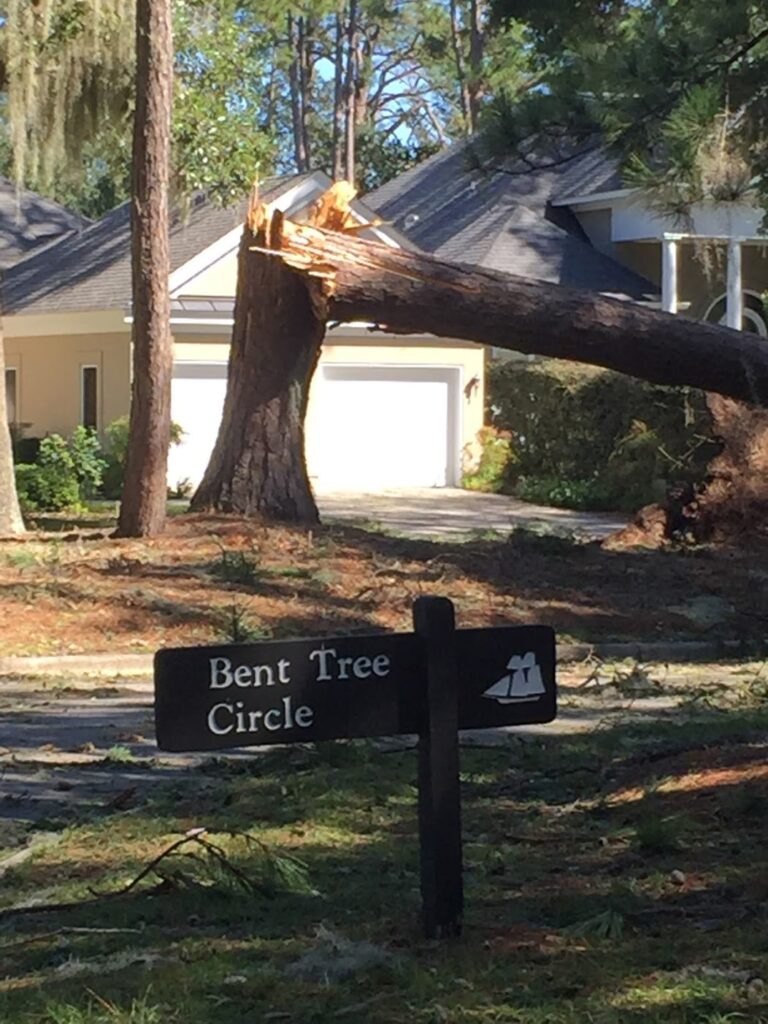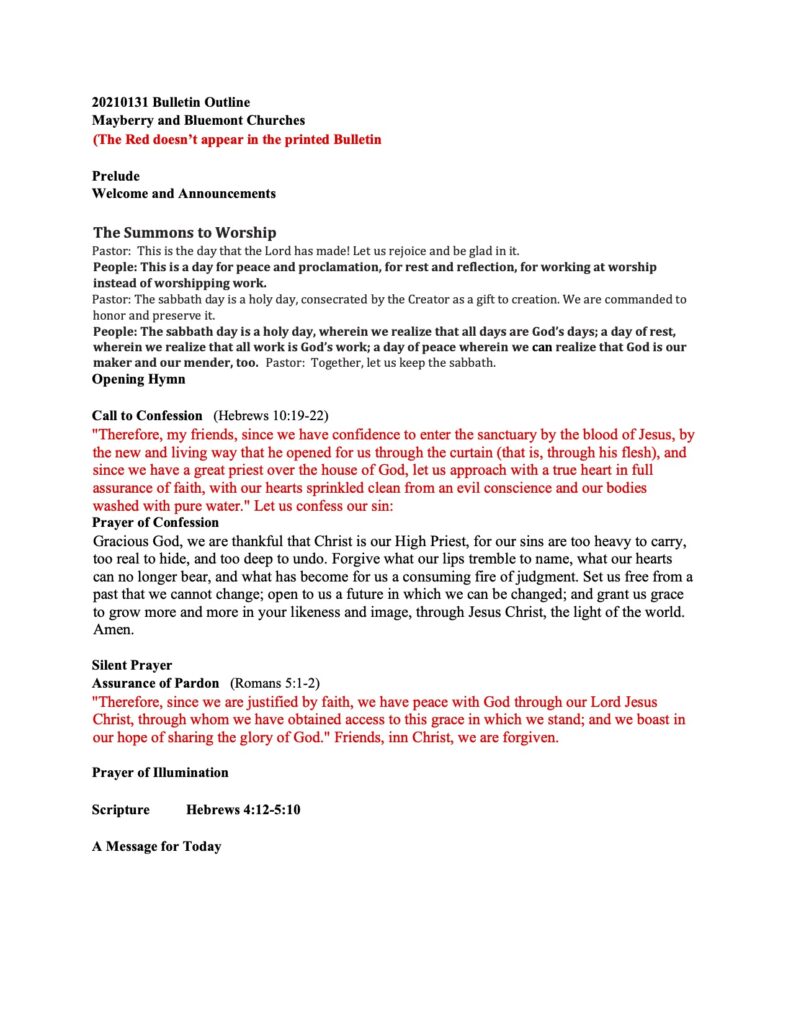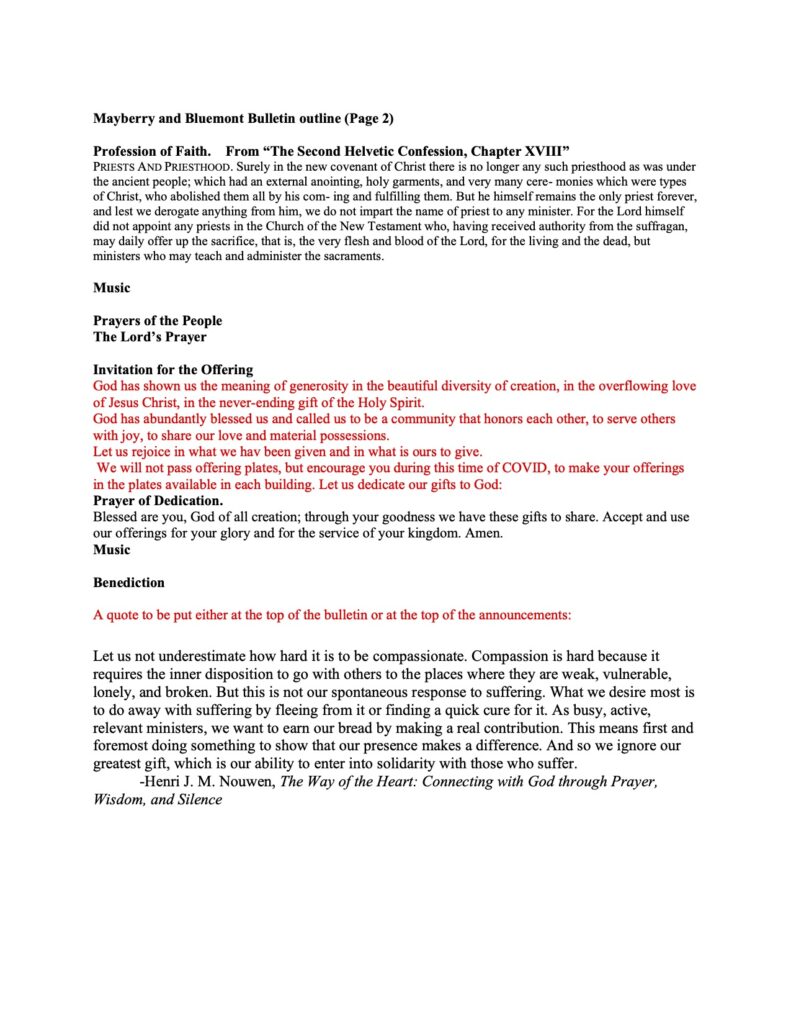Jeff Garrison
Bluemont and Mayberry Churches
Hebrews 11:23-40
May 8, 2021
c2021
The recording was made on May 7 at Mayberry Church.
Thoughts at the beginning of worship
For the past two weeks, I have been slowly reading Garrison Keillor’s memoir, That Time of the Year. I savor a chapter or two each night before bed. Keillor often gives praise for those who helped him along the way. There’s a long litany of such folks: his mother, aunts, teachers, even preachers in the separate Brethren Church of his youth. It’s a good practice for us to think of those who helped us along the way. On Mother’s Day, we obviously think about moms. If they’re alive, we should thank our mothers. But there are often others, too, that serve in such capacity, that deserve our thanks.
For one his High School drama coaches, Keillor writes:
“Miss Person gave me encouragement, which I was desperate for… Her gift was to help self-conscious youngsters step out of the bubble. ‘It’s not about you. It’s about the material. Work on the material. Don’t make the performance be about you. Let yourself be a vehicle for something greater than yourself.’”[1]
Be a vehicle for something greater than yourself
“Let yourself be a vehicle for something greater than yourself.” Good advice. And isn’t this a lesson we’ve seen lived out in the lives of faith as recorded in the 11th Chapter of Hebrews? Those who dare to trust and follow God become a vehicle for something greater than themselves. Abraham and Sarah, an old couple, started a family and gave the world an insight into the covenant relationship we can enjoy with God.
Today, as we look at the end of Hebrews 11, we’ll learn about Moses and others, all of whom are vehicles for something greater. May we also strive to be such a vehicle.
After the scripture
I recall a bumper stick from back in the 80s. It read, “The one who dies with the most wins.” Later in that decade, the movie Wall Street came out. It was to be a movie that showed the dangers of excess. In it, the movie’s villain, in a speech, makes the statement, “Greed, for lack of a better word, is good.”[2] It was shorted to “Greed is good,” and became the motto for the decade. None of this expresses a Christian truth, but it’s an age-old idolatry we battle.
As Christians, our goal can never just be to achieve as much as possible in this life. Two reasons. First, we know that everything we have or might earn belongs to God.[3] And second, we, of all people, know that God has something better instore for us. This is a message found throughout Hebrews. We are called to make decisions in our lives based on such knowledge.
Moses and his parents
Today, we continue through this lengthy list of heroes of the faith found in the 11th chapter of Hebrews. We start with Moses. But the author here, doesn’t just point out Moses’ faith. Moses family risked their lives to go against the order of Pharoah and to save their firstborn boy. They did this, even though it meant letting him go and allowing him to be claimed by Pharoah’s sister.[4] Today’s Mother’s Day, and we can only imagine the pain in Moses’ mother’s heart as she watched her son float down the Nile in a basket. She provided him with a chance to live. But think of the faith required.
And then there is Moses himself. He chose the hard path. He was willing to stand up for those who were slaves, those who had no standing, those who were expendable. This didn’t help him, at least not financially. He had to abandon the wealth of his adopted family and flee Egypt. And when he came back to lead the Hebrew people out of bondage, he wasn’t well liked by those among whom he had lived. Think of his sacrifice, what he gave up, because he had faith. Think of those who risk positions of power or prestige to stand up for what they believe is the truth or justice. We witness true faith when someone places God first, above all else.
Dorrigo Evans: Giving up what you desire
Those of you who have gotten to know me know that I tend to read 3-4 books at a time. They are always in different genre which allows me to keep them apart. One of the books is always an unabridged audible reading. Currently, the book I listen to in the car and on walks is Richard Flanagan’s The Narrow Road to the Deep North. The story is about Dorrigo Evans, who is a physician within the Australian army. Captured in Java, early in World War 2, his fate is a POW camp in Thailand. There, they are assigned to the building of the Burma Railroad.

The bridge over the River Kwai (which was only a small part of the Burma Railroad). My photo, taken in 2011.
The history of the Burma railroad is horrific. The author notes that some account puts the death toll over 200,000 men. Think of it this way: that’s more people than the number of words in his 350-page book.
When the commander of their unit dies, Dorrigo becomes the top-ranking officer. He tries to do what he can to help those under his command. At one point, some of the men secretly kill and butcher a small cow they find wandering lost. The men have been dying for solid food. The cooks present their commander with a slice of the best, a steak. He and his men have been consuming mostly grass soup with a little rice. He finds the steak so tempting but knows it would be a bad example. There is not enough meat to go around for everyone. So, instead of accepting this gift, he insists the cooks take the steak to the hospital and give it to the men there. His actions earn him praise, but oh did he want that steak.[5]
Negative consequences of doing what is right
Doing what is right often has negative consequences. Instead of enjoying life in the palace, Moses found himself living the rest of his life in a tent in the wilderness. Instead of enjoying a nice slice of beef, Dorrigo continues to have hunger pain. However, is the right action to satisfy our bodies for the moment, or to do what can to help others?
Rahab
Rahab is another of our characters. She might not be the woman of the Bible who comes to mind on Mother’s Day. The author of Hebrews doesn’t mince words. We’re reminded of her occupation: prostitution. Interestingly, other contemporary Jewish writings in the first century avoided her occupation. Instead, they praised her for hospitality to the Hebrew spies.[6]
We learn two things about Rahab in this passage. First, she heard how God had helped the Hebrew people during the Exodus. She believed this God was for real. So, she uses her knowledge to bargain to save her entire family. Her parents and siblings and their family benefit from her faith. Unlike many of these examples, Rahab received her promise immediately, by saving her family. But she also becomes enshrined in the Hebrew hall of fame. She is an ancestor of both King David and Jesus.[7]
How many of us have benefitted from the faith of another? Especially from the faith of our mothers, or in this case, the mother benefitting from the faith of the wayward daughter?
Faith of the Hebrew people
The Book of Hebrews credits the people following Moses with faith as they cross through the sea and as the walls of Jericho fall. Interestingly, however, he doesn’t mention Joshua. If you remember, Joshua took over after Moses and was the one who led them to victory in the conquest of Canaan. This oversight may have been intentional. Hebrews doesn’t want us to focus on an earthly “Promised Land,” where the people found “rest.” Instead, our focus is to be on our true homeland, the place God has in store for us.[8]
Other examples
After Rahab, the preacher of Hebrews cites a litany of Old Testament heroes. Unfortunately, the rhetorical beauty of his litany in Greek gets lost in translation.[9] Poetry is hard to translate. Three sets of names mentioned: those who accomplished through faith, those who overcome obstacles by faith, and those who endured suffering by faith.[10]
The names include four judges, one king, and illusions to many of the prophets. While the prophets, except for Samuel, are not named, two stand out. These are Elijah and Elisha. Both credited with resurrecting the sons of widows. These resurrection accounts are mentioned here.[11]
As our author winds up his litany of heroes with a list of the horrific experiences some have faced because of their faith. When we think we’ve been persecuted, perhaps we should review this list. From mocking and floggings, to being stoning or sawing, while others flee to the deserts and mountains, people of faith have endured much. Yet, as we’re told at the end of the chapter, they did not receive the promise because God has something even better. At the end, seen throughout Hebrews, the author hints to what’s next. Jesus, the perfecter of our faith, has suffered, too.
Ready to run the race
With all these names and examples of faith, the preacher of Hebrews wants us to be ready to run the race, which we’ll get into next week. But until then, think about what we might do if we trust in God and are willing to step out of our comfort zones. What might God do through us? Our lives are never about ourselves. As people of faith, we’re to be a vehicle in which God can make us be more than ourselves. Amen.
[1] Garrison Keillor, That Time of Year: A Minnesota Life (New York: Arcade Publishing, 2020), 98.
[2] The villain, Gordon Gekko, is played by Michael Douglas. The movie came out in 1987.
[3] Psalm 24:1.
[4] Exodus 2:1-10.
[5] While this is an example of Dorriogo doing the right thing, the novel does point out both sides of his life. He is both a flawed and noble man. See Richard Flanagan, The Narrow Road to the Long North (Random House, 2013. This story comes about 4 hours into the book.
[6]Josephus identifies her as an innkeeper, and in the 1st Century rabbinical tradition, she was praised for her hospitality. See Luke Timothy Johnson, Hebrews: A Commentary (Louisville, KY: WJK, 2006), 304.
[7] See Matthew 1:5.
[8] Johnson, 303.
[9] Johnson, 305.
[10] Johnson, 306-309.
[11] See 1 Kings 17:17-24 and 2 Kings 4:25-37.






